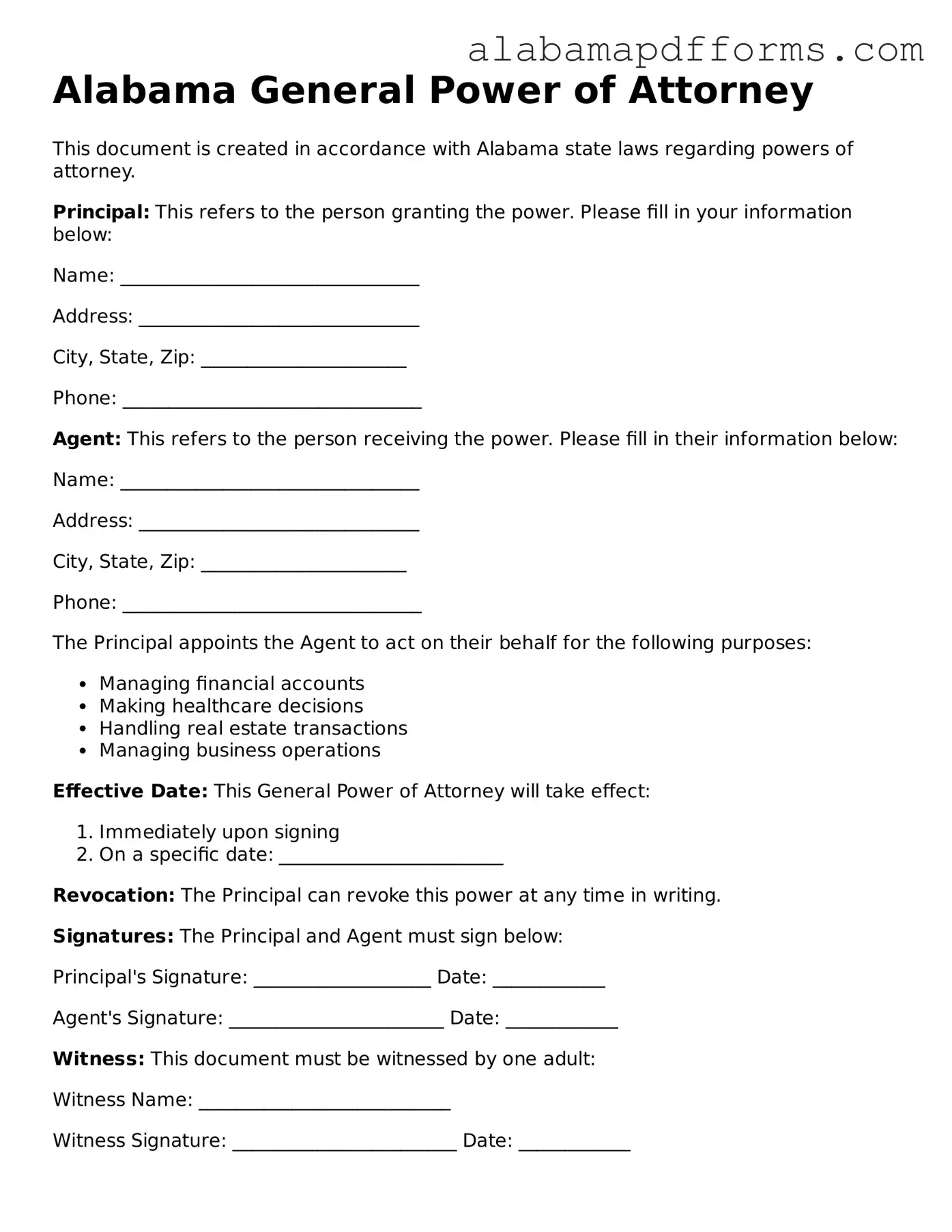Legal General Power of Attorney Document for the State of Alabama
The Alabama General Power of Attorney form is a legal document that grants an individual the authority to act on behalf of another person in a variety of financial and legal matters. This form is crucial for ensuring that your affairs are managed according to your wishes when you are unable to do so yourself. Understanding its purpose and the implications of its use is essential for anyone considering this important legal tool.
Fill Out Your Document Online

Legal General Power of Attorney Document for the State of Alabama
Fill Out Your Document Online

Fill Out Your Document Online
or
➤ General Power of Attorney PDF Form
Your form is halfway done
Complete and edit General Power of Attorney online in minutes, hassle-free.